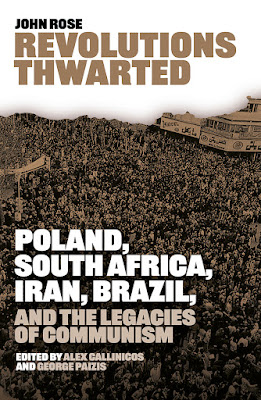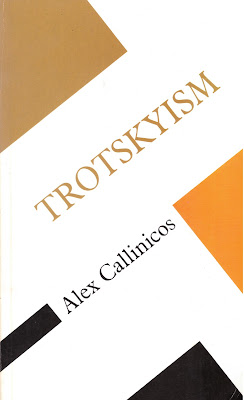Powell's speeches gave our membership and morale a tremendous boost. Before Powell spoke we were getting only cranks and perverts. After his speechs we started to attract, in a secret sort of way, the right-wing members of the Tory organisations.
The NF quickly began to establish itself. Its methods of operating were to target minorities, particularly black and Asian people and communities. But also to hold provocative and headline grabbing violent events. They stormed left events, protested at politicians and held intimidating marches through black and Asian areas. By the early and mid-1970s racist violence and attacks, including murders, were common. The NF could mobilise hundreds and often thousands to its ranks.
In opposition to this, as Geoff Brown's excellent history shows, a myriad of anti-racist groups began to organise. Some of these were liberal and soft, refusing to challenge the fascists and hoping to demonstrate that love might overcome hate. Others were more confrontational and still others saw oppressed communities fighting back to defend themselves. By 1976 the anti-racist movement was ready to go on the offensive. Increasingly militant anti-racists, often led by socialists and communists, were able to confront the fascists. Often this meant taking on the far-right and their friends in the police. In May 1976
two students Dinesh Choudhri from India and Ribhi Alhadidi from Jordan, were fattally stabbed by white youths while making their way to an East London restaurant. A fortnight later, a young engineering student Gurdip Singh Chaggar was murdered by two white teenagers in Southall, West London. Sick of racist and police violence and of their elders' passivity towards it, Southall's young Asians came out en masse. Some demanded 'Blood for blood', attacking white passers-by and stoning cars. When police made arrests among those leaving a meeting... hundreds marchesd without hesitation to the police station and sat down. Surrounded by a sea of protesters, the police got community leaders to pressure those arrested to come out of the police station with promise they wouldn't be charged.
It was on the back of such resistance that the Anti Nazi League was born, but perhaps the key event was the Battle of Lewisham which saw thousands of protesters smash a NF march off the streets. The event was a turning point. One anti-racist socialist activist remembered a NF member at his workplace in Salford taunting him before the protest. After Lewisham the NF member took down his posters and eventually left the fascist group.
Lewisham was a turning point, but it was definitely not the end. The launch of the Anti Nazi League saw the Socialist Workers' Party, together with left-Labour MPs, leading trade union figures and cultural icons come together in a loose leadership that was able to give a national shape to an anti-fascist response.
Brown's account of this process is fascinating. It demonstrates two things. Firstly that principled anti-fascism was key to the ANL - exposing the Nazis as Nazis, helped to discredit their violence. Secondly uniting people around these policies, while allowing participants to retain their individual politics created the space that would enable local groups to flourish. In fact what is remarkable about the ANL through this period is precisely how much it was organised from below. Thousands upon thousands joined, and local initiative was key. Brown repeatedly makes the point that it was local organisation, often, but not always, led by SWP members that created the space for anti-fascism to break free. There are many different examples of this. Take an example from the railways:
These [Anti Nazi League] bdages proliferated around King's Cross. It was really good because it connected you to people you didn't know. In the depot of 500 drivers, I knew them all but there were probabl another 500, maybe 600 guards and another 500 station staff so you couldn't know everybody. But once you saw someone wearing one of those badges, suddenly you hit it off and black workers in particular realised there were more anti-racists than racists around.
The ANL created a space where the NF could be marginalised. But it took more than just badges. The local groups were able to build networks that could, in turn, mobilise hundreds and thousands. Countless meetings, protests, pickets and counter-demonstrations helped to physically stop the Nazis. This often required self defence, but it was sheer numbers that undermined the Nazis and made it difficult for them to carry on.
Brown's book is remarkable for being a genuine "people's history". It is filled with memories, recollections, interviews and press cuttings. Readers get a real sense of how the movement built and how participants were shaped by it. A generation of radicals learnt their organising skills in the ANL and often generalised into wider arenas. Brown highlights, for instance, how the LGBT+ movement in the 1970s gained renewed energy from the anti-Nazi fight as did movements against sexism. Some of this deeply moving. Gurinder Chadha, the renowned film director who made Bend it like Beckham was at first Rock Against Racism carnival. She recalled being unconfident to go on the march, so waited near the park and hearing the approaching demonstration stood on a box to see:
When I looked down the street, what I saw changed my life forever. From that moment I became the political filmmaker I am today, hundreds and hundreds of people marching side-by-side in the display of exuberance, defiance and most importantl, victory. I couldn't believe my eyes, these were white, English people - many with long hair like the rockers I could never relate to - marching, chanting to help me and my family find our place in our adopted homeland.
Rock Against Racism was a key part of the anti-fascist struggle. It help shutdown the cultural spaces the Nazis were trying to take as their own. But it also made it easier for thousands of young people to become active politically. There were other off-shoots. One of the most fascinating chapters of Brown's book is on SKAN - School Kids Against the Nazis. A remarkable organisation that, with very little adult input, was able to shape politics in schools and among young people in fascinating ways. Starting with the fight against racism, it quickly took up issues like corporal punishment.
Brown's book is a brilliant read. One of its great strength is that it is not London focused, but tells us the stories of how the ANL organised across the country, not least in Greater Manchester where Brown was organising. But it is more than just a nice bit of history. It is a political manual for building a mass movement against racism. Brown, a long standing SWP member, is clearly proud of the role of the organisation and that of people like himself. Quite rightly. But he is also proud of the political clarity that made the ANL both possible and successful. The book doesn't hector in its politics - there are sections that look at historical struggles and take up theoretical discussions. But these are part of a wider story, and the real political lessons are in the reports of the hundreds of people that are interviewed and quoted in the book. Using the method of the United Front, the SWP was able to relate to wider forces and change British politics. The NF were smashed.
Today the far-right in Britain and around the world seems to be unstoppable. Yet if Geoff Brown's book teaches us anything, they are very much stoppable. Doing that requires mobilising the anti-racist majority in society, and particularly turning out the workers' and their organisations who bring numbers and collective power. Everyone who wants to see the end of the far-right in the 21st century should read this superb book. It is very much one for our time, and Geoff Brown has done our movement and our history a remarkable service.
Related Reviews
Hirsch - In the Shadow of Enoch Powell: Race, Locality & Resistance
Richardson (ed) - Say it Loud! Marxism and the Fight Against Racism
Aspden - The Hounding of David Oluwale
Dresser - Black and White on the Buses: The 1963 Colour Bar Dispute in Bristol
.jpg)










